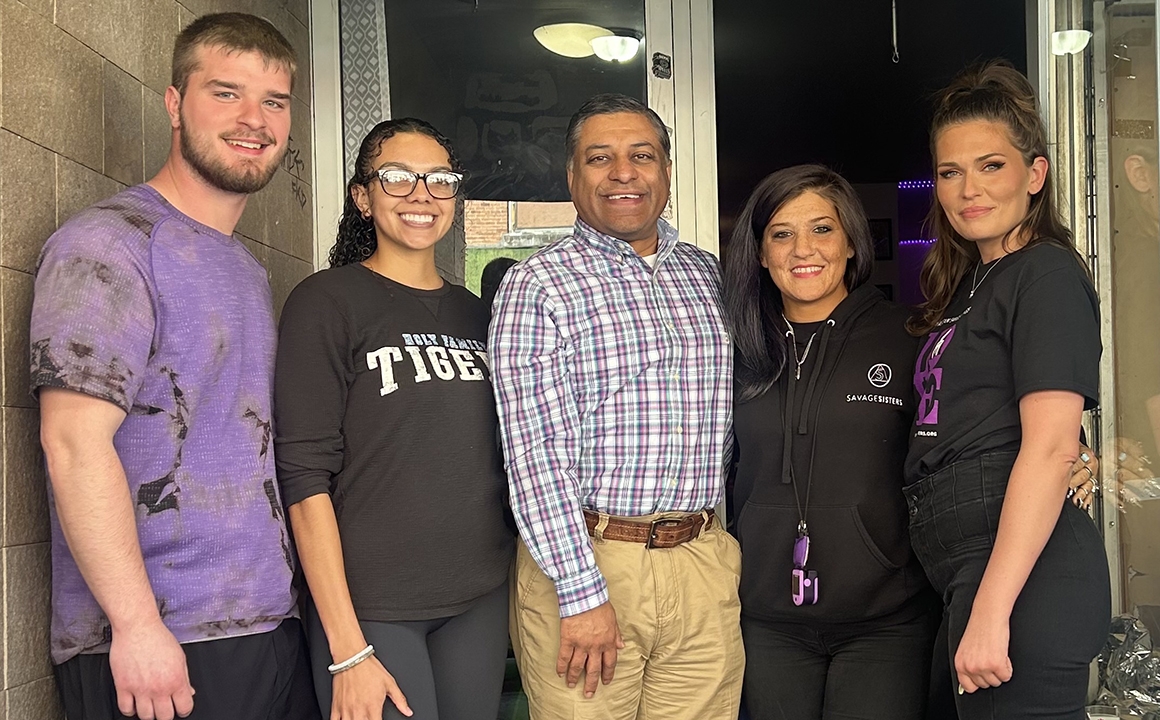White House Director of the Office of National Drug Control Policy Meets with Holy Family University Nursing Students

Dr. Rahul Gupta, the White House Director of the Office of National Drug Control Policy, visited Philadelphia during the week of April 17 to discuss the fentanyl and xylazine crisis.
At Savage Sisters Recovery Wound Care Clinic, Dr. Gupta met with Holy Family students Timothy "TJ" Pritz '24 and Alivia Roberts '24, who volunteer at Savage Sisters every Thursday.
Pritz and Roberts had the opportunity to speak with Dr. Gupta about their work at the clinic, which involves providing care to addicts who are seeking medical attention for their wounds. These wounds, being a product of the xylazine, have the potential to leave tendons, muscles, and even bones exposed. Once the addicts seeking wound care are admitted, medical teams will typically start them on detox, rather than treating their pain, which is the priority problem in these circumstances. In essence, these wounds are extremely painful and addicts are not given any pain medication to make the hospital stay bearable.
"Dr. Gupta, TJ, and I spoke about ways healthcare facilities could put pain as the priority while putting detox as a second priority," explains Roberts. "The problem at hand comes into play once their 'high' has worn off/the street drugs are no longer in their system. At this point, it is easier for addicts to return to the street to treat their pain with recreational drugs vs staying at the hospital. We all agreed and acknowledged there should be a 'xylazine protocol' for when addicts come into the hospital. This protocol would allow healthcare teams to better and more efficiently treat addicts by prioritizing their pain. With this, addicts would be able to endure their hospital stay while also getting the adequate and necessary medical attention they need.
"Another important component of this conversation is the manner hospital staff approach addicts. In many cases, addicts are detoured from going to the hospital due to bad experiences they have had in the past. With Dr. Gupta, we are trying to create a friendlier, unprejudiced environment in which addicts will feel safe and cared for so they can receive medical attention. Although we all understand movements like this take time, it's good to know we are taking the first steps to put our plans into action."
“Philadelphia is experiencing intensified effects from fentanyl combined with xylazine, but their response is intensified, too,” said Dr. Gupta in a statement. “The City of Brotherly Love is showing our nation what’s possible when everyone across public health, public safety, harm reduction, and beyond come together to take on a common threat. The historic and coordinated work being done in Philadelphia will help shape our national response to xylazine.”
For more information about these programs, please visit the School of Nursing & Health Sciences webpage.
